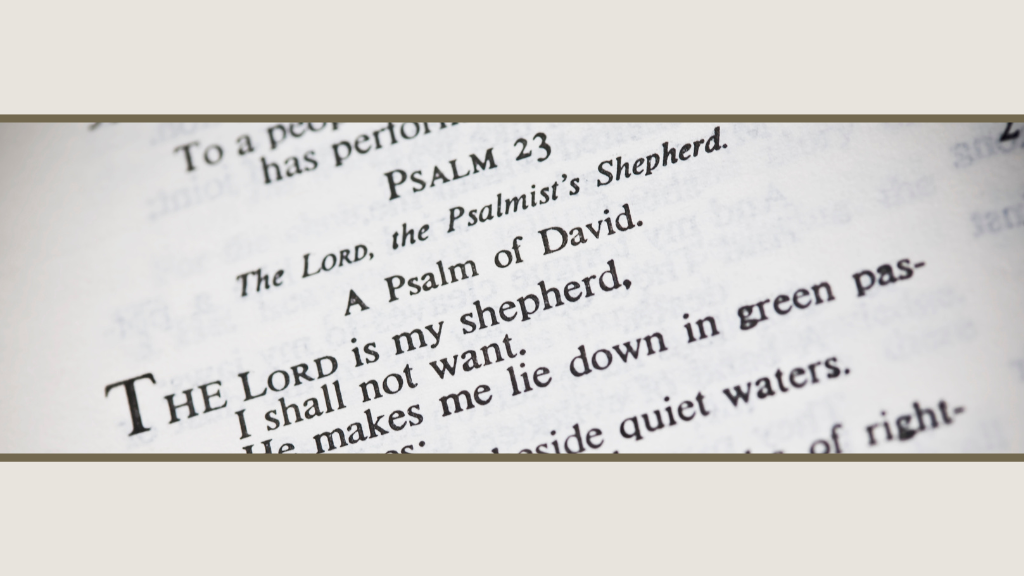Resurrecting Psalm 23
The most famous psalm in the Bible has been regulated to a funeral service – Psalm 23. It is our task to take these 227 Hebrew letters, 57 Hebrew words, and six verses and resurrect them back into the land of the living. Before we begin CPR on Psalm 23, we must stop viewing the patient as a psalm. In fact, we should not even entitle the book to Psalms. The correct Hebraic title for the hymn book of the bible is Praises – Tehillim.
Tehillim is the plural of the word tehillah (praise). The title of the hymn book, Tehillim, provides us with how to view life with God when we worship Him. No matter our situation in life, a believer must end up praising God.
The hymn book records the highs and lows of multiple authors as well as the demands and expectations they put on God to rescue themselves and His people. Yet, each chapter is ultimately a praise to Him. Instead of viewing chapter 23 as a “psalm,” let’s view it from the perspective of “praise.”
While many sermons focus on the “Shepherd” and the “valley of the shadow of death,” few have addressed the end of the first verse of Psalm 23 — usually translated as “I shall not want.” These four English words are represented by two Hebrew words ל ֹא ֶא ְח ָסר (loh ekh-sar). Although the opening of verse 1 is the present tense —“The Eternal is My Shepherd,” it concludes in the future tense. If we follow the rules of grammar, the end of verse 1 should be “I have everything.” What’s this future all about? The revelational answer comes down to one letter—alef (א).
First, let’s begin with the correct translation of the last two Hebrew words of Psalm 23:1, loh ekh-sar – “I will not miss anything.” Second, one needs to know there are twenty-two letters in the Hebrew alphabet. Three, these letters were created before the world came into being (Proverbs 8:23, 30). Fourth, each Hebrew letter has a numerical value. Finally, the Hebrew letters construct each other.
Let me demonstrate. The first letter of the Hebrew alphabet is alef (א) and it has a numerical value of 1. It is the letter that begins the word of the verse Psalm 23:1 אֶ ְח ָסר (ekh-sar).
The alef is constructed from two other Hebrew letters yud (י) and vav (ו). The numerical value of yud is 10 and the numerical value of vav is 6. If you look at the alef closely, there are two yud’s and one vav. By combining these two letters that form alef, the total numerical value of the word is 26.
The name of God that begins Psalm 23:1 is the Tetragrammaton (יהוה) translated as ‘The Eternal,’ since the term is a fusion of three Hebrew time- related expressions, future, present and past. God above time! The numerical value of the Tetragrammaton is 26 (yud -10; hey -5; vav -6 and hey 5).The alef that begins the last word of the verse is hinting to the name of God at the beginning of the verse. Alef equals the Tetragrammaton.
A Hebraic translation of Psalm 23:1 would thus be “A melody to David: The Eternal is shepherding me, I will not miss anything.”
The reason I will not miss anything is because of the alef that represents The Eternal. When I am all in with Him, I will always have it all. Instead of just reciting this verse at a funeral, it is time for the Praise to be part of our living with God!





